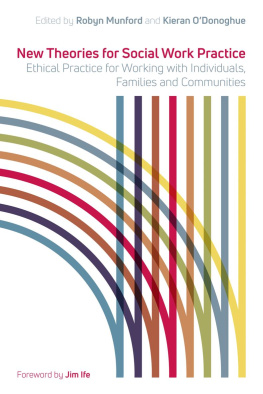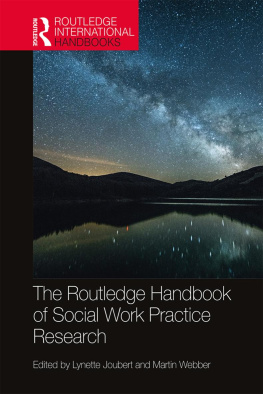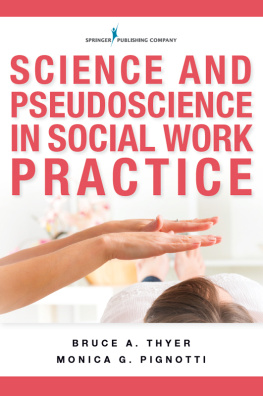SAGE has been part of the global academic community since 1965, supporting high quality research and learning that transforms society and our understanding of individuals, groups and cultures. SAGE is the independent, innovative, natural home for authors, editors and societies who share our commitment and passion for the social sciences.
Find out more at: www.sagepublications.com

Heather DCruz and Martyn Jones 2014
First edition published 2004. Reprinted 2007, 2009, 2010 and 2012.
This edition first published 2014.
Apart from any fair dealing for the purposes of research or private study, or criticism or review, as permitted under the Copyright, Designs and Patents Act, 1988, this publication may be reproduced, stored or transmitted in any form, or by any means, only with the prior permission in writing of the publishers, or in the case of reprographic reproduction, in accordance with the terms of licences issued by the Copyright Licensing Agency. Enquiries concerning reproduction outside those terms should be sent to the publishers.
Library of Congress Control Number: 2012956001
British Library Cataloguing in Publication data
A catalogue record for this book is available from the British Library
ISBN 978-1-4462-0078-0
ISBN 978-1-4462-0079-7 (pbk)
SAGE Publications Ltd
1 Olivers Yard
55 City Road
London EC1Y 1SP
SAGE Publications Inc.
2455 Teller Road
Thousand Oaks, California 91320
SAGE Publications India Pvt Ltd
B 1/I 1 Mohan Cooperative Industrial Area
Mathura Road
New Delhi 110 044
SAGE Publications Asia-Pacific Pte Ltd
3 Church Street
#10-04 Samsung Hub
Singapore 049483
Editor: Alice Oven
Assistant editor: Emma Milman
Production editor: Katie Forsythe
Copyeditor: Sarah Bury
Proofreader: Sarah Cooke
Indexer: Judith Lavender
Marketing manager: Tamara Navaratnam
Cover design: Lisa Harper
Typeset by: C&M Digitals (P) Ltd, Chennai, India Printed in India at Replika Press Pvt Ltd
In Memoriam
Daphne Monica DCruz (ne Doggett) (19312007)
James Joseph DCruz (19272012)
To
Penny, Ben and Hannah
Contents
About the Authors
Dr Heather DCruz was employed in Australian public sector organizations (19791996) and as an academic at various Australian universities (19962009). More recently, she was an Adjunct Research Associate, Centre for Human Rights Education, Curtin University, Western Australia (20102012). Heathers research interests are in child and family policy and practice, and identity, diversity and inclusivity. She is the author of Constructing Meanings and Identities in Child Protection Practice (2004, Tertiary Press, Australia). She is also a co-editor (with Struan Jacobs and Adrian Schoo) of Knowledge-in-Practice in the Caring Professions: Multi-disciplinary Perspectives (2009, Ashgate, UK), and (with Margaret Kumar and Niranjala Weerakkody) of Where are you From? Voices in Transition (2010, Common Ground Publishers, Altona, Australia). She was an invited Visiting Leverhulme Fellow (20072008), sponsored by the University of Salford, UK.
Associate Professor Martyn Jones is Associate Dean (Human Services) in the School of Global, Urban and Social Studies at RMIT University, Melbourne, Australia. He was employed previously in social work education at Deakin University, Australia and at Exeter University in the UK. Martyn has had a long-term interest in the relation between research and practice in social work, and the potential benefits for marginalized populations. His current academic pursuits include the changing contexts of human service practice, and models of collaborative knowledge exchange.
Acknowledgements
The original book published in 2004 was based on print study materials (Social Work Practice Research A: Study Guide and Reader, Deakin University). This new edition is substantially different in content, although the overall theme of the ethical and political dimensions of social work research remains constant. We would like to acknowledge Deakin University for their encouragement and interest in this new edition. We would also like to thank colleagues in Australia and overseas who have provided constructive feedback and encouragement of our ideas over the years. We would like to thank our students, without whom many of the developments in this text would not have emerged in our quest to make research interesting, engaging and practical. We extend special thanks to Struan Jacobs for his unstinting help and willingness to wade through lengthy drafts of some chapters and offer scholarly advice. We are appreciative of the support and encouragement from our editors at Sage, London, especially Emma Milman, who has been with us throughout the process. Finally, we are grateful to have survived this marathon, through family bereavements, significant health crises, and the multiple demands of academia in the twenty-first century. Completion would not have been possible without the affirming presence of family, friends, and companions.
Heather DCruz and Martyn Jones
October 2013
Preface
This book is an update of the book that was first published in 2004. Based on both formal and unsolicited feedback we have received over the years, we have kept to the structure and themes from the first book, the overarching theme being that of addressing different ways of knowing, and the associated ethical and political issues for social work research. However, we have updated the examples (case studies and most activities) and revised the content in line with current issues for the social work profession and for social work research. In particular, we have included new material on indigenous peoples knowledge, related to colonisation by settlement and by globalization. We have also included new material on research with children as participants.
While we have updated most of the references, we have also kept key sources that may be old, but are foundational and classically helpful. We have included recent publications in the Further Reading at the end of each chapter, and a dedicated website for some chapters with additional links to useful materials. We would also recommend the references that we cite as useful sources for you to read.
In overview, this book has never been, nor is it now, a book on the technicalities of how to do research. There are many excellent and substantial texts that are about methods, and we refer to them. While our book provides an overview of each stage of the research process and is organized accordingly, its focus is on the ethical and political issues that need to be considered when engaging in research and, in particular, how these relate to different ways of knowing. provide the conceptual basis for this.
Our approach is to provide a conceptual framework and set of principles for practising social work research ethically with an emancipatory ethos. Because each research project is particular in its conceptual approach, aims, design, and context, we cannot provide you with solutions to many of the ethical and political issues that arise due to different ways of knowing. We do offer a number of Activities, which include case studies and examples to illustrate some of these issues and to draw your attention to them, and to familiarize you with how to think them through, supported by the content in each chapter. Our intention is to introduce an approach to research that is about










